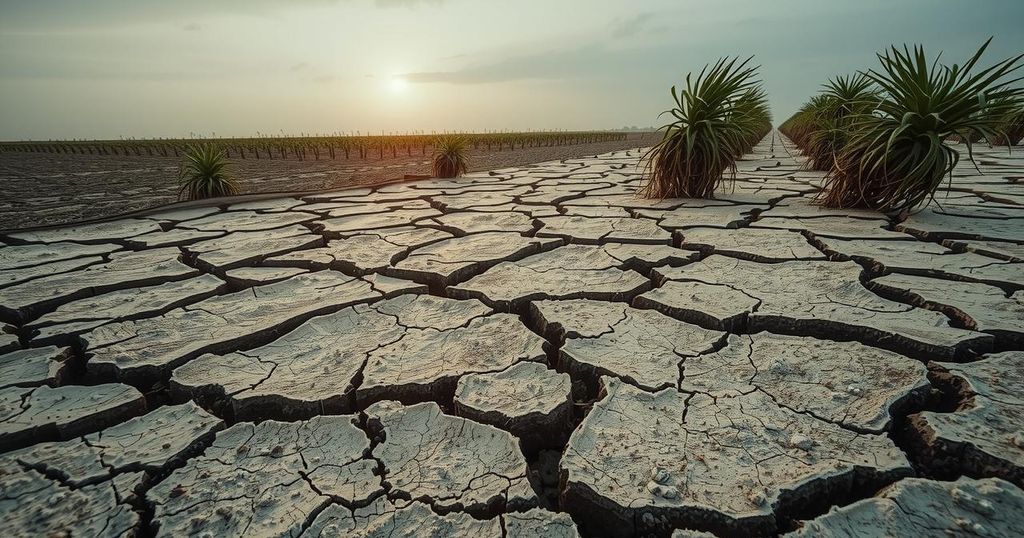A new report reveals that only 20% of Kenya’s soil is fit for agriculture, with significant degradation due to erosion and salinization. Human activities along with natural factors are driving this crisis, impacting food security as millions face potential acute food insecurity. Solutions for sustainable soil management are urgently needed to counter these issues and support agricultural resilience.
A recent report indicates that a mere 20% of Kenya’s soil is suitable for agricultural production, raising significant concerns for the country’s food security. The Soil Atlas Health Report 2025 reveals that Kenya faces severe soil degradation, losing 26 tons of soil per hectare every year due to water-related erosion, with some areas experiencing losses of over 90 tons.
Soil health is crucial for food and nutritional security, as well as in the battle against climate change. Soils store more carbon than vegetation and the atmosphere combined; plants absorb atmospheric carbon and store it in the soil through their roots. In East Africa, the situation is even direr, with more than 40% of soils degraded, undermining the agricultural foundation of the region.
Various human actions and natural factors contribute to soil degradation, including overgrazing, unsustainable farming, deforestation, and unpredictable weather patterns. Overgrazing is particularly detrimental in dry areas, removing vegetation that protects soil, making it more susceptible to erosion and compaction, which diminishes its water retention and plant support capacity.
Salinization also worsens soil degradation in Kenya, especially in arid regions where poor irrigation practices, like using low-quality water, lead to salt buildup. When water evaporates, it leaves behind salts that accumulate to harmful levels. Approximately 40% of irrigated land in Kenya suffers from salinity, hindering agricultural productivity.
Additionally, nutrient depletion remains a significant challenge to soil health in Kenya, with over 85% of soils lacking essential nutrients. Continuous farming without soil replenishment, rising soil acidity, and inadequate management practices exacerbate this issue. Degraded soils are projected to result in a 30% decrease in agricultural output, increasing reliance on food imports.
An alarming report from the National Disaster Management Authority (NDMA) estimates that 2.8 million people could face acute food insecurity from April to June 2026, amid the anticipated below-normal long rains. This situation reflects a rise of 650,000 individuals requiring emergency aid compared to previous figures, with the most vulnerable groups being children aged six months to six years and breastfeeding women.
In summary, the decline in soil health across Kenya poses a multi-faceted threat to food security and nutritional well-being. Significant soil degradation attributed to erosion, salinization, and nutrient depletion underscores the urgent need for sustainable agricultural practices. Failure to address these conditions may lead to increased food dependency and heightened vulnerability during droughts, particularly affecting young children and nursing mothers. The findings bring attention to the vital role of soil management in ensuring agricultural productivity and combating food insecurity in the region, necessitating immediate action to halt further soil deterioration.
Original Source: www.kenyans.co.ke






